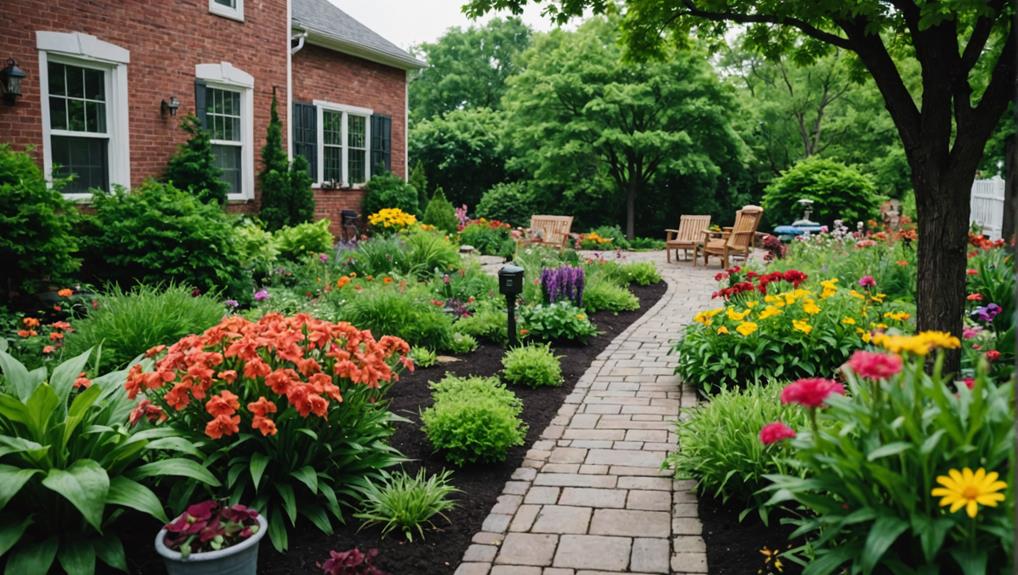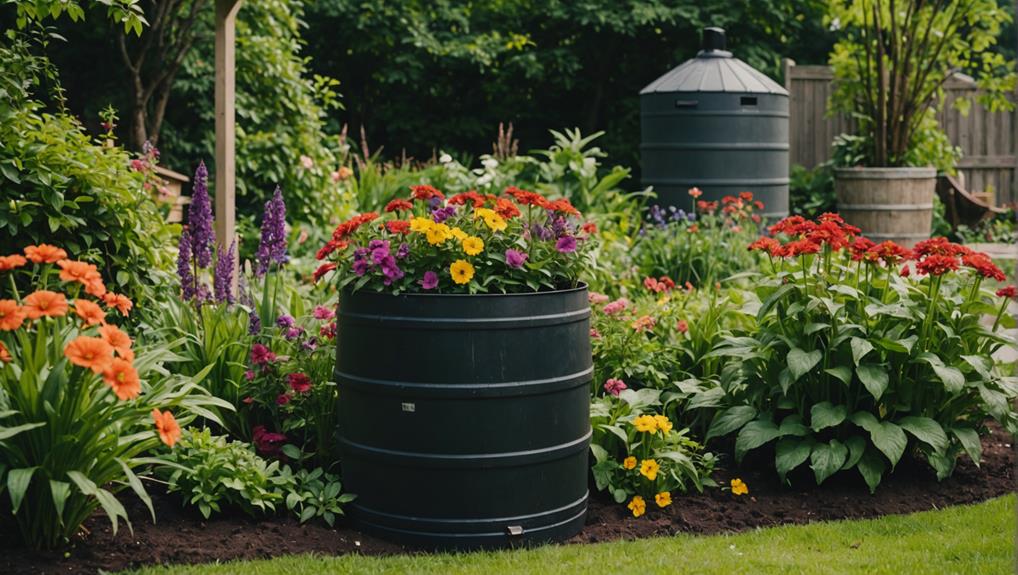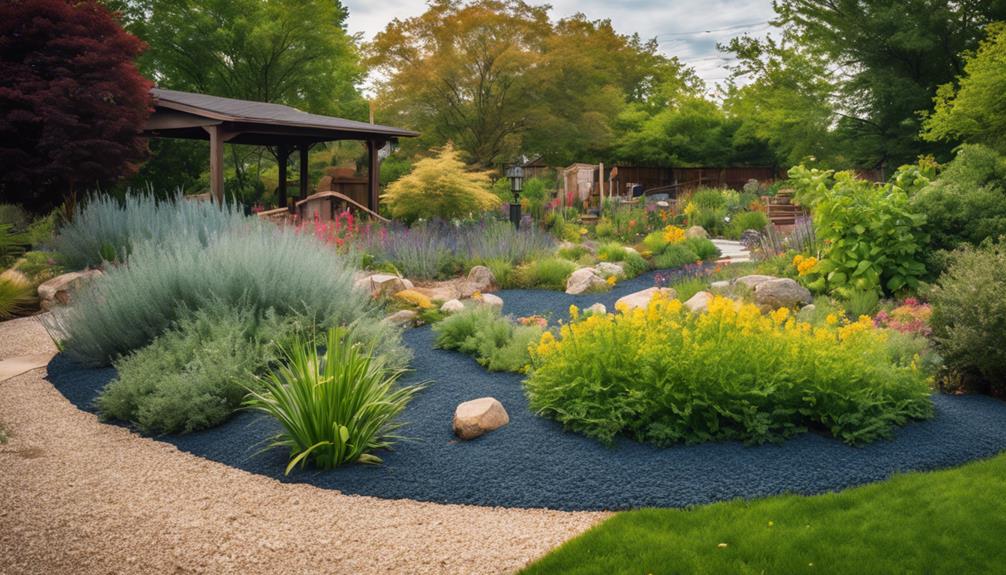Make your Philadelphia yard a beautiful place that saves water! Start by planting native flowers and trees like Eastern Redbud and Purple Coneflower. These plants grow well with the rain we get here.
Next, try xeriscaping. This means putting plants together that need the same amount of water. Use mulch, which is like a blanket for your plants, to keep moisture in the soil.
Also, think about getting a smart watering system. These can help you water your plants just when they need it. Drip irrigation is another great option because it sends water right to the roots of the plants.
Don't forget about your soil! Adding organic matter and putting down mulch will help keep the soil cool and full of nutrients.
With these simple steps, you can save water while making your yard look amazing!
Keep reading to find out more ways to help your garden thrive!
Key Takeaways
Water-Saving Landscaping Tips for Philadelphia Homes
- Pick plants that naturally grow well in Philadelphia, like the Eastern Redbud and Purple Coneflower. These plants don't need too much water to stay healthy.
- Try xeriscaping! This means choosing plants that can handle dry conditions. Group them based on how much sun and water they need, so they can grow better together.
- Use smart watering systems or drip irrigation. These methods help you water your plants more efficiently and make sure less water evaporates into the air.
- Spread organic mulch around your plants. It keeps the soil moist, helps block weeds, and adds nutrients to the soil as it breaks down.
Choose Native Plants
When you pick native plants for your garden, you're making a great choice for both beauty and the environment! Native plants, like the Eastern Redbud and Purple Coneflower, grow really well in Philadelphia's climate. They need less water compared to plants from other places, which makes them easier to care for.
Imagine having a garden that looks amazing without a lot of work! Native plants grow strong roots that help keep the soil healthy and hold onto water better, which is good for the environment.
Implement Xeriscaping Techniques
If you want to save water and make your garden beautiful, try xeriscaping! Start by choosing plants that don't need a lot of water, like purple coneflower and lavender. These plants grow well in Philadelphia's weather.
Next, put plants together based on how much sunlight and water they need. This helps them grow better and saves water.
Don't forget to add mulch! Mulch helps keep the soil wet and stops weeds from taking over.
You can also use gravel paths in your garden. These paths make it look nice and help with water drainage.
Optimize Irrigation Practices

To save water while keeping your garden healthy, it's important to use smart watering methods.
First, think about getting a smart irrigation system. This system can change how much water your plants get based on the weather and how wet the soil is. This can help you save a lot of water—up to 60%!
Another great option is drip irrigation. This method delivers water right to the roots of your plants, which means less water is lost to the air. Try to water your plants early in the morning or later in the evening. This way, they can drink up the water before the sun makes it evaporate.
It's also smart to group plants that need the same amount of water together. This way, you can water them all at once, making it easier and more efficient.
Lastly, think about collecting rainwater. This can help you use less water from the tap, especially when it's dry outside.
Utilize Mulching Strategies
Using mulch in your garden is a smart way to keep your plants happy and healthy! When you put a layer of organic mulch—like wood chips or shredded bark—on the soil, it helps keep moisture in and makes your garden look great. This means you won't have to water as often, which saves time and water, especially during the hot summer months in Philadelphia.
Mulch is also great for fighting off weeds. Weeds can steal water and nutrients from your plants, but with mulch, they've a harder time growing. A layer that's 2-3 inches thick is perfect for keeping the soil cool and moist.
Plus, as the mulch breaks down over time, it adds nutrients back into the soil, making it even better for your plants.
Enhance Soil Quality

Improving soil quality is super important for growing healthy gardens in Philadelphia's unique city environment. To get started, you should test your soil. This way, you'll know how acidic it is and what nutrients it might be missing. Once you have that information, you can add things to make it better.
One great way to improve your soil is by mixing in organic matter like compost or well-rotted manure. This not only helps the soil hold onto water but also makes it easier for plant roots to grow. Plus, it encourages helpful tiny organisms that live in the soil and keep it healthy.
Another useful tip is to use mulch. Mulch is a layer of material you put on top of the soil. It helps keep the ground at a good temperature, stops weeds from growing, and means you won't have to water as often.
For the long run, it's a good idea to practice crop rotation and cover cropping. This means changing what you plant in different spots each year and planting certain crops that help put nutrients back into the soil. By using these methods, you can create the perfect home for local plants, making sure your garden looks great while also saving water.
Frequently Asked Questions
How Do I Keep Water Away From My House Landscape?
To keep water from getting too close to your house, you can do a few simple things. First, plant a rain garden with plants that are native to your area. These plants can soak up extra water.
Next, you can make swales, which are like shallow ditches that help direct water away from your house. They guide the water where you want it to go instead of letting it pool near your home.
Another good idea is to use permeable paving for driveways or paths. This type of paving allows water to soak through instead of running off.
What Is a Useful Strategy for Water Efficient Landscaping?
To make your garden use less water, try grouping plants that need the same amount of water together. This way, you can water them all at once! Using drip irrigation is another great idea because it sends water straight to the roots of the plants, helping them get exactly what they need without waste. Also, putting down organic mulch can help keep the soil moist by covering it up. By doing these things, you can have a beautiful garden while saving water at the same time!
What Are 3 Management Techniques You Can Incorporate in Outdoor Landscaping to Be More Water Efficient?
If you want to save water while making your outdoor space look great, here are three easy techniques you can use:
- Group Plants by Water Needs: Plant flowers, bushes, and trees that need similar amounts of water close together. This way, you can water them all at once and avoid wasting any water.
- Use Drip Irrigation Systems: Instead of using a regular sprinkler, try a drip irrigation system. It delivers water directly to the roots of the plants, which helps them get the moisture they need without using extra water.
- Apply Organic Mulch: Spread a layer of organic mulch, like bark or straw, around your plants. This helps keep the soil moist and prevents weeds from growing, which means you won't have to water as much.
What Is a Landscape Method That Conserves Water?
Have you heard of xeriscaping? It's a cool way to garden that saves water! Instead of lots of thirsty grass, you use plants that don't need much water. This makes your yard easier to take care of, helps you use less water, and looks beautiful without much effort. So, if you want a colorful garden that doesn't need a lot of watering, xeriscaping is the way to go!

